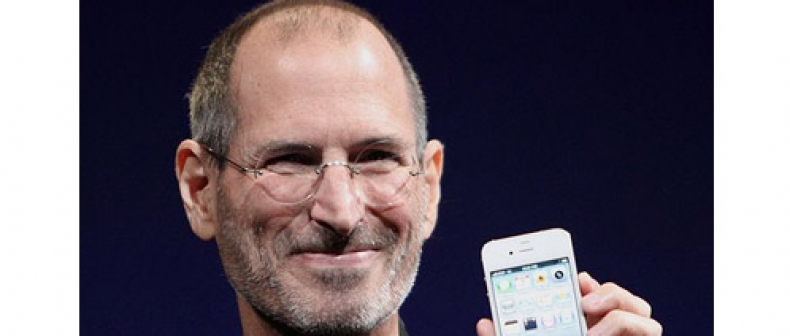
Don’t feel too sad about Steve Jobs’ resignation as CEO of Apple.
That may seem a very strange thing to say today. After all, when a person who has seemingly dedicated his life to a company reluctantly leaves, the reasons don’t inspire hope. Given Jobs’ ongoing health problems, when news of the resignation broke last night, it was hard not to read it with a sinking feeling in one’s stomach – and a lump in the throat.
But so much of the sadness that swept over the internet yesterday evening was not just sympathy for a man whose sickness seems particularly unfair. It was for us too. There was a feeling that we were being robbed of a person whose dedication, foresight and genius have affected so many of our lives. As so many said, it seems the end of an era.
But there is also cause for hope, too – or at least less sadness. In a sense, we might temper our melancholy for an ailing man with the thought that, in his time here, he did what he needed to do. His legacy is here to stay.
There will be endless debate over what Jobs’ legacy truly is, of course – whether it was the Apple II or the iPod or the iPhone. Since Jobs is still staying on as Chairman of the board, directing strategy, it’s vaguely possible that it’s still yet to come. But I’d argue that if the man’s effect on the world is to found in any one thing, it isn’t in an object at all: it’s in the ideals the pervade iOS, the operating system that powers the iPhone, iPod Touch and the iPad.
When Jobs returned as Apple CEO in 1997, he brought back his unrelenting, singular style, slashing unprofitable products and emphasizing Apple’s uniqueness with the iMac. But it was the iPod in 2001 that signalled where Apple was headed. It was that small digital music player that paved the way for Apple’s 21st century trademark approach: that digital technology was about a confluence of hardware, design and a software ecosystem.
That combination was underpinned by an emphasis on usability and intuitive control that took over Apple and also started to dominate the popular imagination, too, an approach found its apotheosis in iOS. It was the touch-based operating system that reformed the idea the of computing in general.
When the iPhone launched in 2007, we were well into ‘Web 2.0′ and the digital revolution. But it was also still a world of browsers, a mouse and keyboard, arcane plug-ins you had to download (Realplayer, anyone?) and often baffling minutiae about file types and compatibility. Though many bemoaned its simplified, constrained approach, the iPhone made everyday tasks like checking email and reading the news dead simple, particularly when the App Store came about a year later.
More than design or iTunes or anything else, it is that mantra of accessibility that is Apple’s effect on the world. There is no going back from the iPhone and iPad now. There will not, in Jobs’ possible absence, be a sudden return to technology that hides digital’s massive potential behind layers of complexity and obfuscation. We have, to invoke Jobs’ own spiritual rhetoric, seen the light. For better and worse, what Jobs singular mission produced was the idea that the digital tools we use should be as transparent as possible, allowing those who use (and can afford) Apple products to create and experience, unimpeded.
That is not to say that this legacy is without ambivalence. It is possible that Jobs has almost been too successful, centralizing too much control and influence in a single multinational corporation. Moreoever, Apple have never really cared about the accessibility of being affordable. If you’re poor, the digital revolution is not for you.
But the effect of Apple’s mantra has worked its way into our culture – and my life too. Today, it is almost certain that in a suburban home north of the city, my 73 year old father will spend some time glued to his iPhone. Though he is still occasionally confused about the distinction between an app and a browser, a man who was previously baffled by the internet will use the device to read the news, listen to music on YouTube and maybe even send me a link or two – largely because doing so is incredibly easy.
You can tell that something or someone is historically significant when his or her influence is felt in the smallest of ways, in the day-to-day rituals of our lives. Because going back is now unthinkable. As new CEO Tim Cook said in a letter to Apple staff, “Steve built a company and culture that is unlike any other in the world and we are going to stay true to that – it is in our DNA.” Sure, part of that is simply to calm the nerves of already jittery investors. But in a week in which there has been much to be sad about, it’s also a reason for hope: that despite the enormous challenges ahead, the world can still be changed – that with vision, purpose and a bit of luck, a life well-lived can still make a difference.














